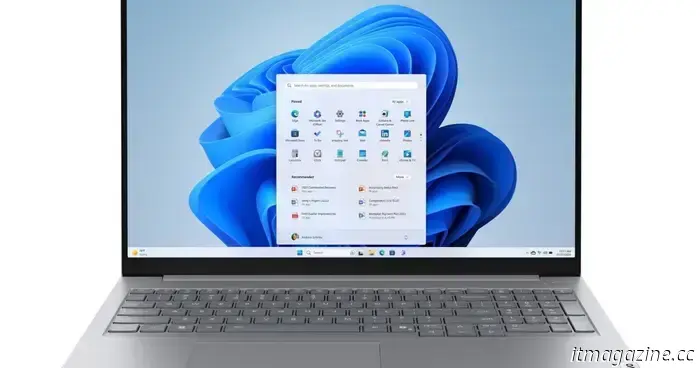
The largest blackout in Europe forced me to face my reliance on technology.
Unprecedented power outages affected Portugal, Spain, and parts of France on Monday, disrupting the technology-reliant lives of myself and millions of others.
Initially, I felt unfazed. However, the landlord of my Lisbon apartment sent me a link to an article from The Sun titled “Spain & Portugal hit by huge power cuts…” I attempted to access it, but the page failed to load. After a brief time with backup power, mobile networks shut down entirely.
I headed to my local café in search of more updates. “We don’t know what’s happening—everything is down,” the owner told me, pointing to her malfunctioning register. She was only able to serve sandwiches and drinks and, like all other businesses, could only take cash.
A customer approached me, saying, “They’re suggesting it could be a Russian cyberattack,” while appearing quite relaxed. “Think of it as a free holiday,” he joked.
I didn’t find it amusing. I had no cash on hand, leaving me unable to buy food, and without electricity, I couldn’t prepare anything from my fridge. I also remembered that water supply systems depend on electric pumps. Plus, I had three young kids at home who were likely wondering when Dad would fix the TV.
Trying to stay calm amid the 30-degree heat, I left the café in search of an ATM. The first one was completely offline. The next one had power but only allowed me to check my account balance. Cash machines require internet connectivity to interact with banking servers for withdrawals—without it, they’re just glowing boxes of misplaced hope.
“I took the train to Lisbon this morning, but now I can’t get back,” said a man in his 30s, who was also seeking cash for a taxi. We chatted briefly, speculating about the lack of power. “I heard on the radio that it might be related to the weather,” he said, mentioning an unfounded theory that the outage stemmed from “induced atmospheric vibration” due to extreme temperature changes affecting power lines. I wondered if this was a technical issue or something more insidious.
Continuing my search for more reliable information, I eventually found it at the local hospital; it was the only place with electricity and WiFi, thanks to its backup diesel generators. Scanning the news headlines, I found some positive updates. Officials stated there was no indication of a cyberattack. Contrary to my Hollywood-inspired fears, Europe wasn’t under siege, nor was a zombie apocalypse occurring.
The unfortunate news was that no one knew when power would be restored. Some sources suggested it would take a few hours; others predicted a week or longer. I returned home empty-handed and with few reassurances—and no means to fix the TV. As dusk fell, I started feeling anxious. “Now I understand why people build doomsday bunkers,” I remarked to my wife.
Off the Grid and Unprepared
The blackout on April 28 became the largest in European history, leaving over 60 million people without power. Mobile networks went down. Card readers and ATMs failed. Airports shut down, trains ground to a halt, and traffic snarled without functioning lights. Some individuals remained trapped in elevators and underground metro systems for hours. In Spain, it is believed that at least five people lost their lives due to the situation.
In just minutes, modern European life, so reliant on electricity, data, and immediate connectivity, came to a standstill. While most of Spain and Portugal regained power by midnight on Monday, the event raised significant concerns about Europe’s infrastructure, security, and resilience. Personally, it prompted a sobering reflection on my dependence on technology and how ill-prepared I am for when the systems I rely on go dark.
I have always considered myself fairly self-sufficient. Growing up in South Africa, blackouts (though planned) were part of everyday life, and unpredictability was commonplace. I used to camp, forage, and cook over open flames. I enjoyed making things with my hands, believing I had a solid grasp on surviving without modern conveniences.
However, like many, especially in the West, I have become deeply dependent on technology. When the blackout occurred, those systems collapsed—and with them, the illusion of my independence shattered. My fridge was stocked, but I couldn’t prepare food. My phone had battery, but no signal. My apps provided no information. My digital wallet felt like play money.
It wasn’t just the devices that failed—it was the mental safety net they created. No news, no way to contact loved ones, and no awareness of the blackout’s scale. I realized I had outsourced much of my decision-making to unseen systems.
The kids were calm, unaware of the possible dangers. We played board games by candlelight and admired the sunset over a city illuminated solely by headlights and moonlight. Yet in my mind, I was evaluating: how long would the tap water last? Did
Other articles
 An explanation of the ending of Until Dawn.
Sony and director David F. Sandberg's film adaptation of Until Dawn transforms a classic horror video game into a time loop narrative filled with numerous unresolved mysteries.
An explanation of the ending of Until Dawn.
Sony and director David F. Sandberg's film adaptation of Until Dawn transforms a classic horror video game into a time loop narrative filled with numerous unresolved mysteries.
 The Star Wars Tie Fighter Echo Dot stand is a limited edition item that demands attention.
Star Wars Tie Fighter Echo Dot holder
The Star Wars Tie Fighter Echo Dot stand is a limited edition item that demands attention.
Star Wars Tie Fighter Echo Dot holder
 Heart Aerospace's decision to relocate to the US indicates that Europe is 'pushing innovation away.'
Heart Aerospace from Sweden is relocating its headquarters to Los Angeles and reducing its workforce by 75 employees, highlighting the ongoing brain drain in Europe’s technology sector.
Heart Aerospace's decision to relocate to the US indicates that Europe is 'pushing innovation away.'
Heart Aerospace from Sweden is relocating its headquarters to Los Angeles and reducing its workforce by 75 employees, highlighting the ongoing brain drain in Europe’s technology sector.
 PlayStation Plus will feature one of 2024's top games in May.
May brings a retro-themed first-person shooter, a roguelike deck-building game, and a survival game set in a world filled with dinosaurs.
PlayStation Plus will feature one of 2024's top games in May.
May brings a retro-themed first-person shooter, a roguelike deck-building game, and a survival game set in a world filled with dinosaurs.
 This 42-inch OLED gaming television from Samsung is currently on a nice sale.
The Samsung 42-inch S90D 4K OLED is currently discounted at Samsung and various other retailers. Priced at $900, it's best to purchase quickly to take advantage of this offer!
This 42-inch OLED gaming television from Samsung is currently on a nice sale.
The Samsung 42-inch S90D 4K OLED is currently discounted at Samsung and various other retailers. Priced at $900, it's best to purchase quickly to take advantage of this offer!
 This Lenovo ThinkBook laptop is a great deal at a 49% discount.
The Lenovo ThinkBook 16 Gen 8 laptop is currently available at a 49% discount, reducing its price to just $1,000.
This Lenovo ThinkBook laptop is a great deal at a 49% discount.
The Lenovo ThinkBook 16 Gen 8 laptop is currently available at a 49% discount, reducing its price to just $1,000.
The largest blackout in Europe forced me to face my reliance on technology.
I experienced the Iberian blackouts, which made me realize how perilously dependent we are on electricity, data, and connectivity.
